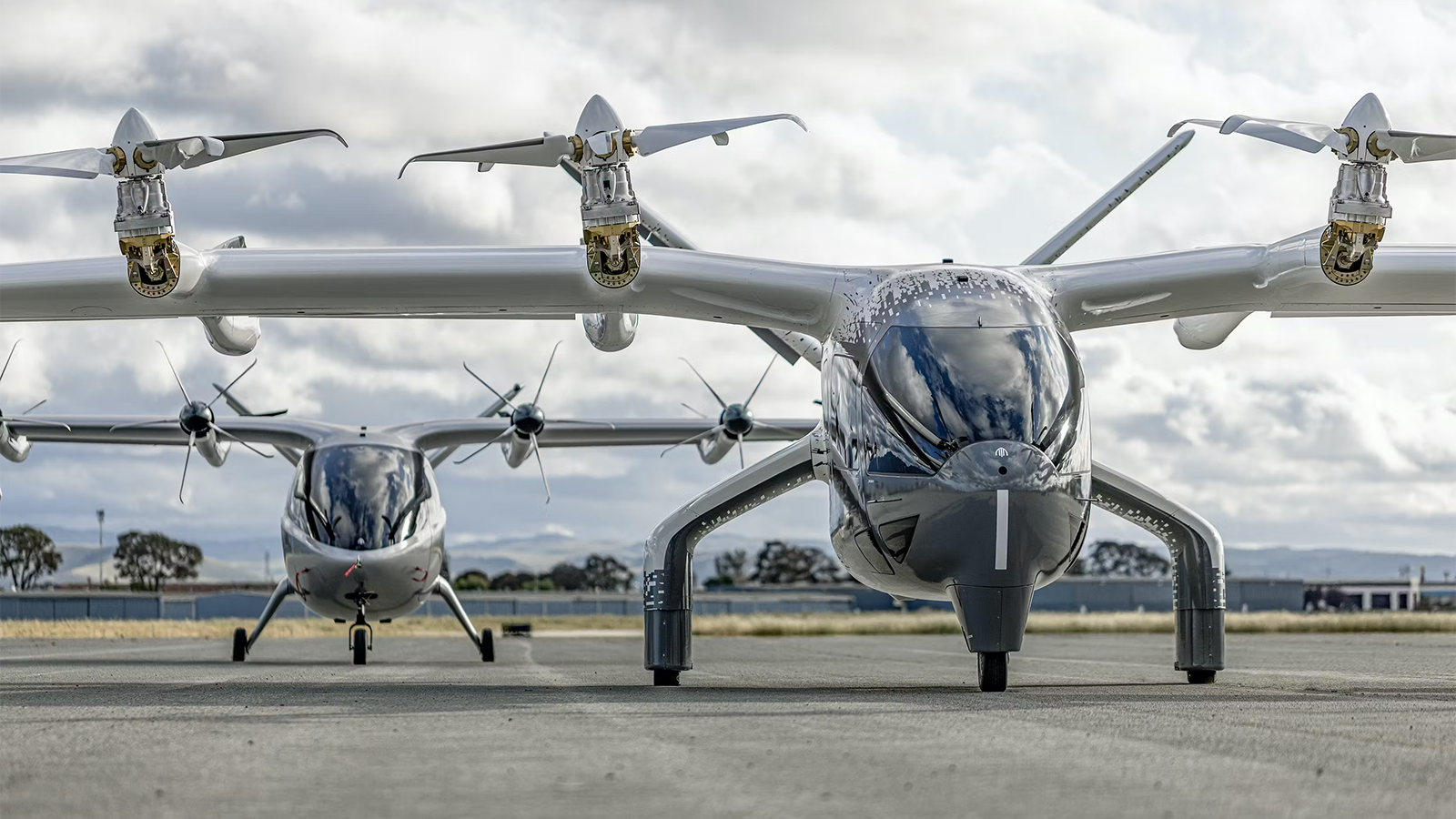Stay Up to Date
Submit your email address to receive the latest industry and Aerospace America news.
Spending is latest to help seed the American electric aircraft industry
Archer Aviation will deliver up to six of its planned four-passenger Midnight electric aircraft to the U.S. Air Force for flight testing and evaluation that the company hopes will lead to purchases by the military for “transport, logistics and rescue operations,” the company announced Monday.
The contract valued at up to $110 million is the latest to an electric air taxi company by the Agility Prime program of Afwerx, the Las Vegas-based “innovation arm” of the Air Force Research Laboratory.
The funding to Archer and others is intended to advance U.S. competitiveness in the development of eVTOLs, electric vertical takeoff and landing aircraft, and could lead to the military utilizing them as niche transport aircraft, the Air Force has said. Archer, based in Silicon Valley, previously received $32 million during design and testing of early prototypes. The company said the funding announced Monday is for an “execution phase” of the previous work, meaning it will go toward flight testing of Midnight, the planned production model.
In May, Archer announced completion of its first Midnight aircraft in Palo Alto, California, and said it shipped the aircraft to Salinas, California, for ground testing and flight tests planned to begin “this summer.” Each Midnight will have six propellers that tilt forward for cruising and six that remain fixed for vertical takeoff and landing. Plans call for Midnights to be mass produced by Archer and automaker Stellantis at a factory under construction in Covington, Georgia.
Afwerx in July showed a model of Midnight at the Experimental Aircraft Association’s AirVenture air show in Oshkosh, Wisconsin, where Air Force Col. Tom Meagher, chief of the Afwerx Prime division, told an audience that eVTOLs are “not just a helicopter replacement.” He described the new class of aircraft as “a way to save money and give us flexibility where we can complement existing platforms.” He added that eVTOLS would never “replace the C-130,” the Air Force’s fleet of much larger aircraft for cargo and troop transportation and medical evacuations.
Meagher was asked if the military accepts lower safety standards than FAA for testing such aircraft. He replied that he did not think that was the case.
“We can accept certain risks by mitigating those risks in the military,” he said. “For example, if I want to operate something on military ranges, I can control that environment pretty well and say there’s not going to be risk to people on the ground, but that might not be possible for a commercial [FAA] certification.”
In September, Air Force Col. Nathan Diller, director of Afwerx at the time, told me that the Air Force “wants to learn what would be required to fly electric aircraft into areas where fossil fuel isn’t available.”
Archer’s contract is part of the U.S. government’s Small Business Innovative Research program. Work will be performed by Archer and Air Force personnel and is expected to be completed by July 31, 2028, according to a government notice about the contract.
At least four other air taxi and electric aircraft developers have received Afwerx funding for test flights, including California company Joby Aviation, Vermont-based Beta Technologies, Virginia company Electra.aero and Texas company Lift Aircraft.
Get the latest news about advanced air mobility delivered to your inbox every two weeks.
About paul brinkmann
Paul covers advanced air mobility, space launches and more for our website and the quarterly magazine. Paul joined us in 2022 and is based near Kennedy Space Center in Florida. He previously covered aerospace for United Press International and the Orlando Sentinel.
Related Posts
Stay Up to Date
Submit your email address to receive the latest industry and Aerospace America news.




